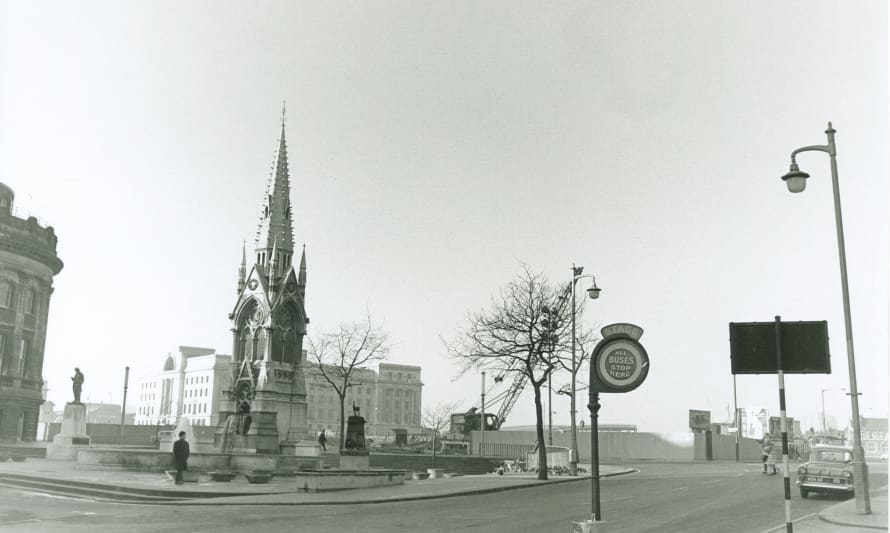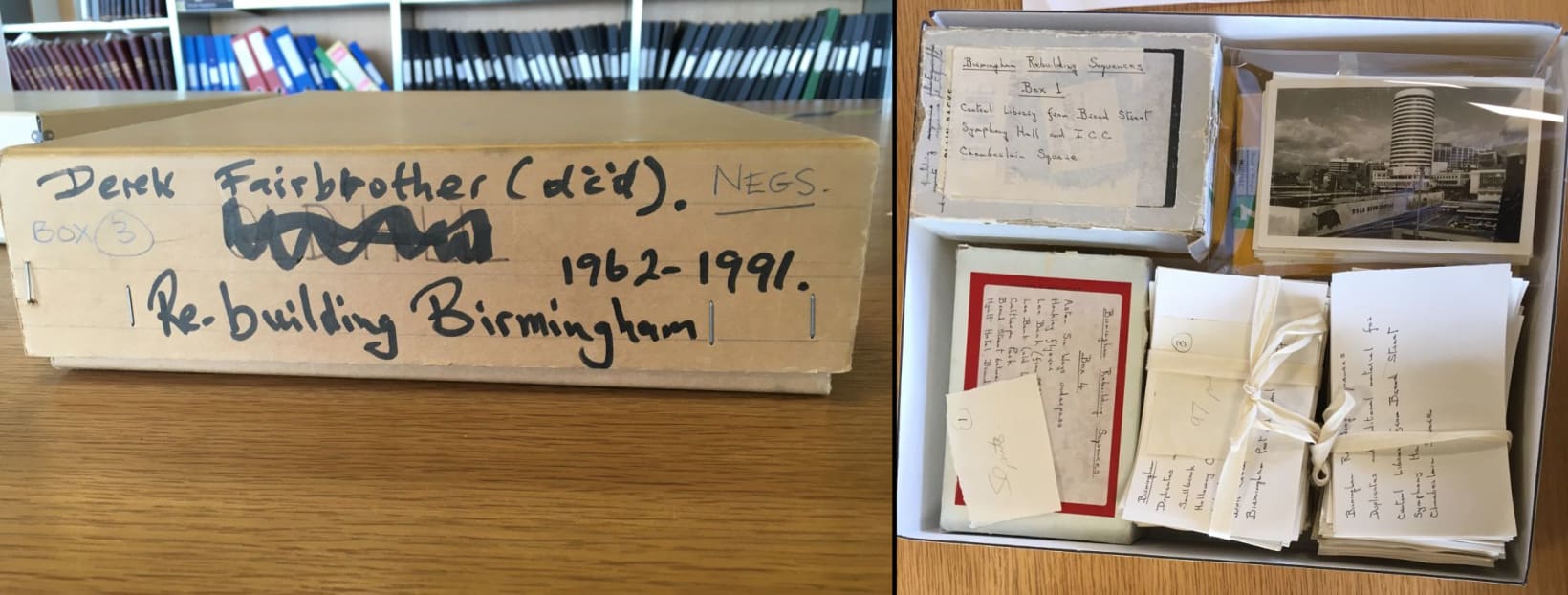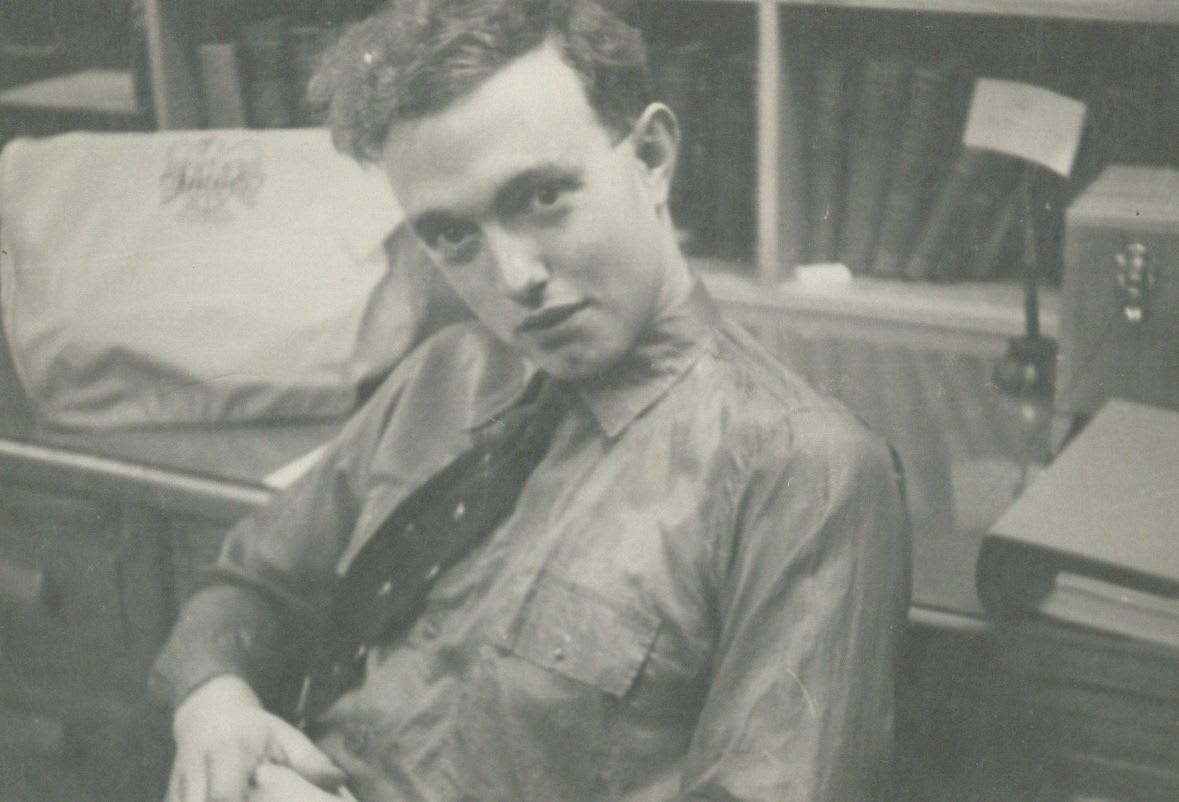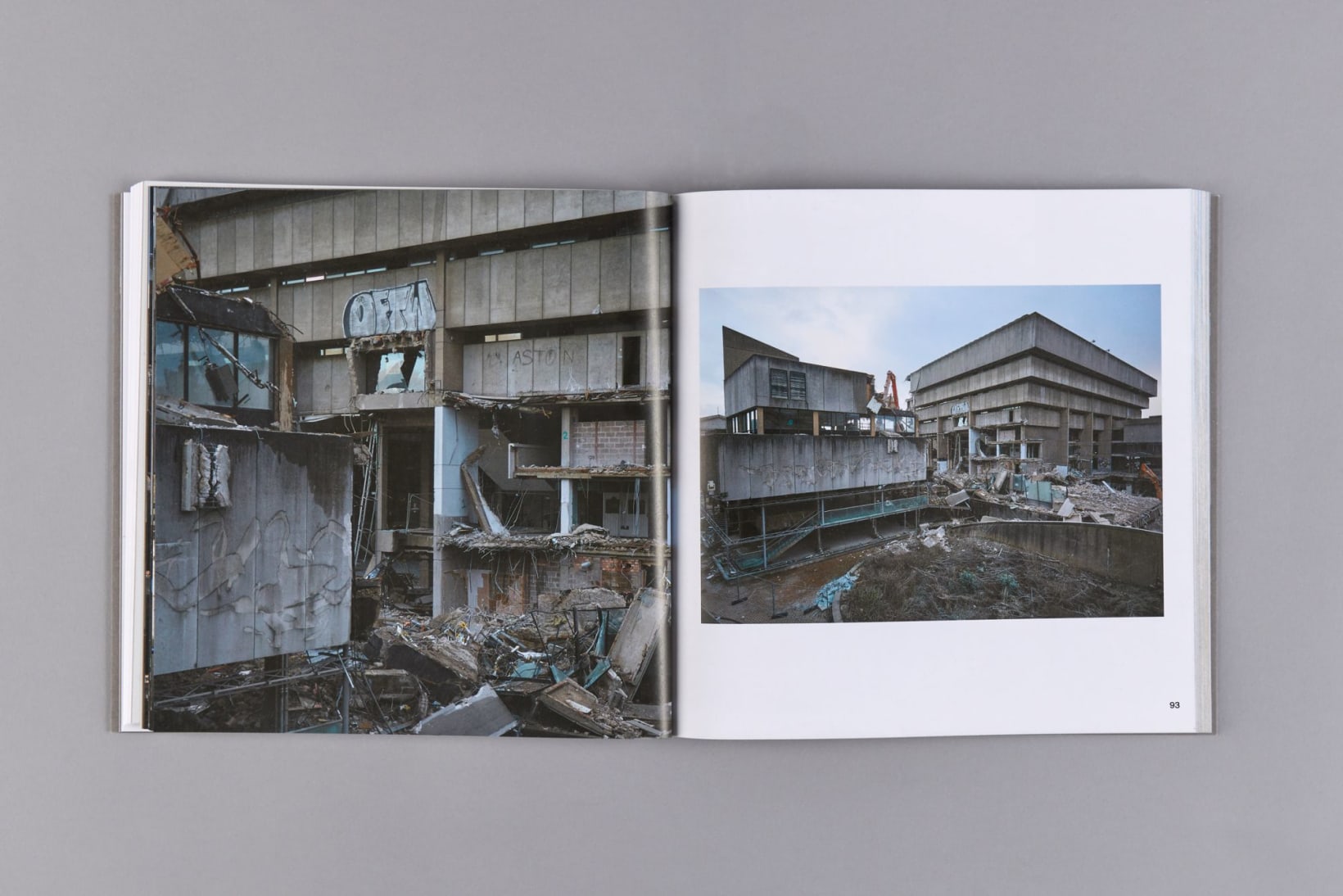
Paradise Revisited
Back in the summer of 2020, I had a couple of park bench chats with Dave Rowan. I was recovering from a hastily-organised online festival, and he was sifting through a mountain of photographs taken from his studio at Birmingham Museum & Art Gallery...
Dave's studio window overlooks Chamberlain Square, and these images were a blow-by-blow record of the demise of Central Library over the course of eighteen months. The idea was to create a publication of some sort, and as we spoke I thought of Derek Fairbrother's work.
An industrial chemist and a keen photographer, he had undertaken a similar project, shooting the changing face of the city from the same spots over many weeks. In his case though, the weeks added up to three decades of postwar redevelopment. I had first encountered the Fairbrother collection when the late Pete James, head of photography at Birmingham Libraries, had asked me to compile a series of images into a timelapse sequence for the 2009 Birmingham Seen exhibition. The resulting one-minute film of Chamberlain Square is on our Vimeo, and still gets views every week:
If you want to try and explain to someone the head-spinning transformation that Birmingham went through in the 60s and 70s, just show them this video. Derek Fairbrother spent countless Sundays revisiting the same street corners, mapping the loss of Birmingham's Victorian streets and the arrival of new dual carriageways and tower blocks. Sometimes the framing shifts halfway through a sequence, as he moves the camera to accommodate a structure twice the size of the thing it's replacing.
I knew there were two boxes of this material stored in the library, but with Covid restrictions they would be off limits for a while. In the meantime I dug through old emails to retrieve the number of Gaynor, Derek's wife. After he died in 1999 it was Gaynor who visited Pete James at the library to deposit these boxes. It turned out she was still living in the same house in Harborne - where Derek developed photos in the box room late into the night - and she was very happy to help.
She talked about their first encounter in the late 50s, through a church group that met at St Martin's in the Bull Ring. The courting took a bit of time, and eventually they had their first date which ended with Derek screening super 8 footage of trains he had shot in Colorado. Gaynor soon realised that photography and film offered this intensely shy man a way of engaging with the world, and as they raised two sons - both inclined towards science and engineering - his thirty-year project formed a backdrop to their lives. Aside from the occasional talk or slideshow very few people got to see the results during his lifetime, but it was clear from the papers he left behind that Derek knew the value of what he had created. Some of these notes didn't come to light until I spoke to Gaynor in 2020, including a description of the film which Derek had been imagining all along.
"The original intention was to use a ciné camera to photograph each sequence, scene by scene, to produce a time lapse effect in which developments taking place over several years were compressed into 1-2 minutes of movie film. This would have been achieved by filming each scene for 2-3 seconds and then fading it into the next one. The time lapse sequences thus produced plus the contents of the reels of black-and-white ciné film would then have been joined and edited to produce a film entitled "The Rebuilding of Birmingham" (or "Brum-Brum: a Metamorphosis" if a more indirect title seemed appropriate!)"
Back at the park bench, the book was starting to take shape. Dave had made a selection to form his own 'timelapse' picking up from where Derek had left off, albeit from a different angle. I wrote some text to sit between the two sequences, based on a post-lockdown visit to Chamberlain Square - a stage set where Birmingham projects its sense of itself. Designer Keith Dodds was helping to pull the whole thing together into a coherent book, while Dave emailed back and forth with a printer in Vilnius and we fretted about Brexit holdups.
Despite ample opportunity in 2020 and 2021 I have failed to learn banjo and my Bulgarian is still terrible, but thanks to Dave's persistence and hard work I am at least emerging with one completed lockdown project. On 12 March, almost exactly two years after we cancelled our fourteenth festival, we'll be gathering in the Jewellery Quarter to toast the arrival of this lovely and unexpected book.
The launch for Paradise 1974-2016 is at minima from 11am on Saturday 12 March. Register for a free place via this link. Books will be available on the day, and you can also pre-order from our website (see below). With thanks to Birmingham Modernist Society, Library of Birmingham, and particularly to the Fairbrother family.



